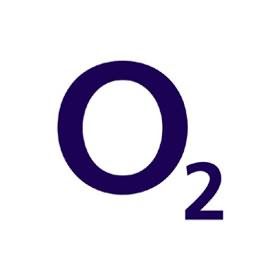 “US customer satisfaction is off the charts”. These were the words of Steve Jobs on the iPhone, adding he was keen to bring this to UK consumers as well. Now, he would say that, wouldn’t he? The lucky (!?) operator to grab it is O2 UK. Why? “We got to pick the carrier that felt most like home, and that’s O2”, says Mr Jobs.
“US customer satisfaction is off the charts”. These were the words of Steve Jobs on the iPhone, adding he was keen to bring this to UK consumers as well. Now, he would say that, wouldn’t he? The lucky (!?) operator to grab it is O2 UK. Why? “We got to pick the carrier that felt most like home, and that’s O2”, says Mr Jobs.
 From 9 November 2007 onwards, the iPhone will be available at a cost of 269 pounds which, converted to c. $540, is substantially more than the comparable price in the US (but then, the UK price includes 17.5% VAT, whilst the US price apparently did not include sales tax). From 35 pounds per month (but tied into an 18-month contract), you get an all-you-can-eat data service that also gives you free access to 7,500 Wi-Fi “the Cloud” hotspots in the UK. This is small consolation for the fact that – rather disappointingly – Apple does not offer a 3G version of the iPhone for the European release but is still running on EDGE; O2 is reported to have been working on upgrading its EDGE network in the UK, which is another addition of cost to what already seems to being a costly deal (since you wouldn’t normally have to add this to a 3G-capable network). Also, it looks as if it was not unlimited after all: O2 said that “1,400 internet pages per day would break the deal as part of fair usage agreement.” Over Wi-Fi, too? Why?
From 9 November 2007 onwards, the iPhone will be available at a cost of 269 pounds which, converted to c. $540, is substantially more than the comparable price in the US (but then, the UK price includes 17.5% VAT, whilst the US price apparently did not include sales tax). From 35 pounds per month (but tied into an 18-month contract), you get an all-you-can-eat data service that also gives you free access to 7,500 Wi-Fi “the Cloud” hotspots in the UK. This is small consolation for the fact that – rather disappointingly – Apple does not offer a 3G version of the iPhone for the European release but is still running on EDGE; O2 is reported to have been working on upgrading its EDGE network in the UK, which is another addition of cost to what already seems to being a costly deal (since you wouldn’t normally have to add this to a 3G-capable network). Also, it looks as if it was not unlimited after all: O2 said that “1,400 internet pages per day would break the deal as part of fair usage agreement.” Over Wi-Fi, too? Why?
 The remarkable spin abilities of Mr Jobs were again on show when he explained the reason for not adding 3G Here‘s what he said: “The chipsets work well apart from power. They’re real power hogs. Most phones now have battery lives of 2-3 hours and that’s due to these very power-hungry 3G chipsets. Our phone has 8 hours of talktime life. That’s really important when you start to use the internet and want to use the phone to listen to music. We’ve got to see the battery lives for 3G get back up into the 5+ hour range. Hopefully we’ll see that late next year. Rather than cut the battery life, we’ve included Wi-Fi and sandwiched 3G between Edge and a more efficient Wi-Fi.” So in effect it is better to have 8 hours of battery life because your browsing takes longer than on 3G? Hmmmm…
The remarkable spin abilities of Mr Jobs were again on show when he explained the reason for not adding 3G Here‘s what he said: “The chipsets work well apart from power. They’re real power hogs. Most phones now have battery lives of 2-3 hours and that’s due to these very power-hungry 3G chipsets. Our phone has 8 hours of talktime life. That’s really important when you start to use the internet and want to use the phone to listen to music. We’ve got to see the battery lives for 3G get back up into the 5+ hour range. Hopefully we’ll see that late next year. Rather than cut the battery life, we’ve included Wi-Fi and sandwiched 3G between Edge and a more efficient Wi-Fi.” So in effect it is better to have 8 hours of battery life because your browsing takes longer than on 3G? Hmmmm…
The one thing everyone is really curious about is whether those recent speculation that O2 offered a whopping 40% revenue share on airtime (AT&T offered 10% USA). Sadly though, nothing has been confirmed to that end although the 10% seem more likely (and it is in itself a continuation of the small revolution Apple triggered with that deal in the US).
And, yes, I want one…





